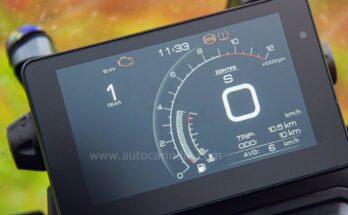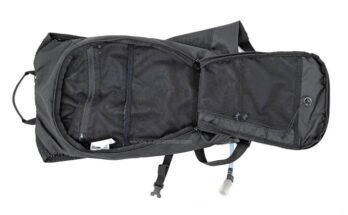With its retro charm, the Classic is putting smiles on faces through a dull and dreary monsoon.
It’s impossible to recreate that sheer child-like joy you felt when you first rode a motorcycle. After all, there’s only one first time. But now and then, you come across a bike that reminds you just why you fell in love with motorcycling in the first place; a bike that isn’t bothered with horsepower figures and lap times, but one that just recaptures the romance of being out on the open road, on two wheels.
The majority of the Classic’s usage in the last few months has come from Mumbai-Pune runs – the equivalent of a mundane weekly commute in the world of motoring journalism, owing to its frequency. On most motorcycles, it’s a case of let’s get this over with. And yet, it seems to take an age. The Classic is now modern enough to tell you the time on its display, but also mesmerising enough that you don’t really care what it is. It’s been serving up a priceless wind-in-your-face, not-a-care-in-the-world brand of motorcycling that’s far too uncommon these days, and in this trance-like state, the journey seems to end far sooner than it does on even the quickest sportbikes.
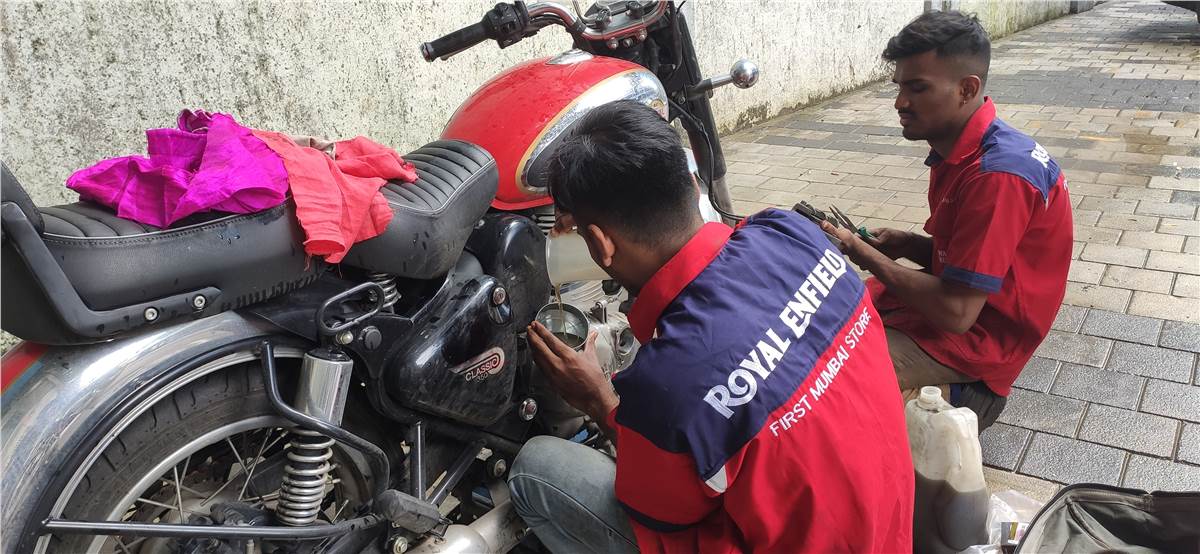
Service-on-wheels provides a great deal of convenience.
Thumping my way back and forth across the Western Ghats, I’ve been given a lot of reason to be grumpy. Merciless torrential rainfall, the unfailingly entropic state of our highways in the monsoon, and the non-existent traffic sense of fellow road users are only the biggest items on a long list. And on most other motorcycles, arrival at the destination is accompanied by little more than relief. Every time I’m on the Classic and nearing Pune though, I spot the sign that says ‘Bengaluru: 888km’, and I think to myself, “Hmm, might not be the worst idea.”
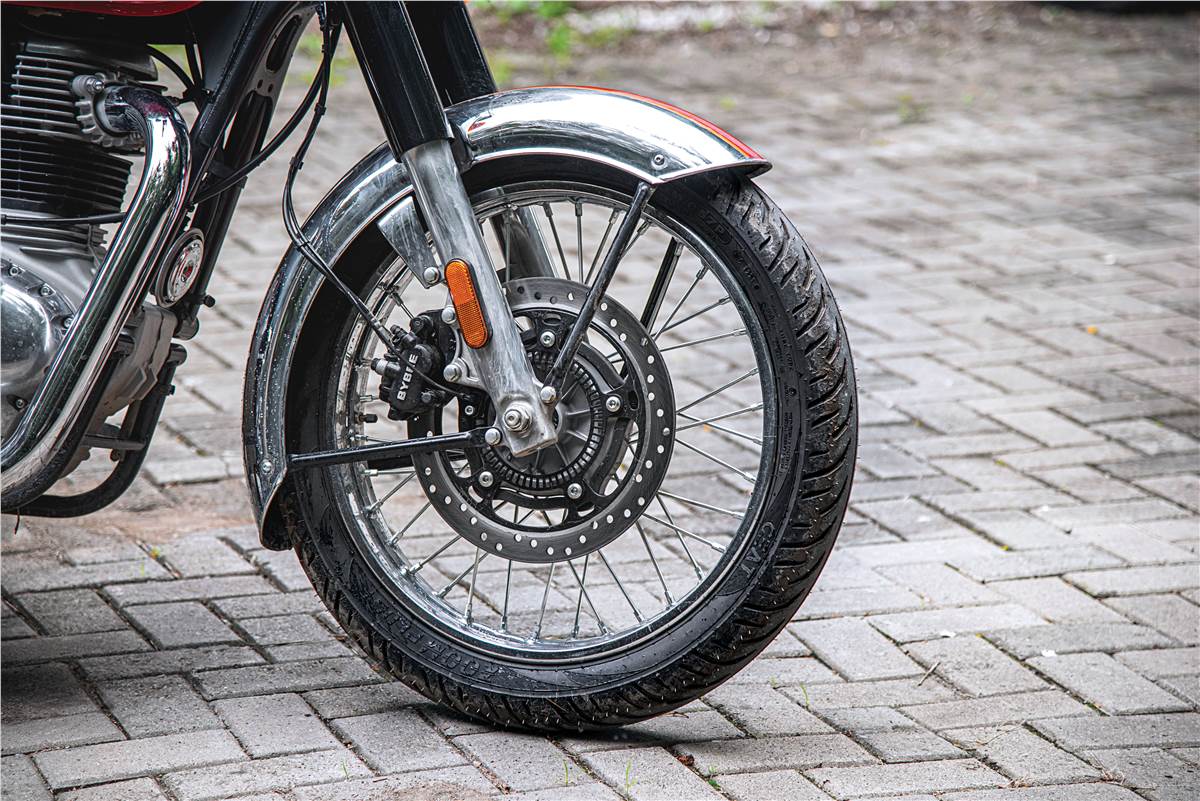
The CEAT tyres have performed well through the monsoon.
Of course, like any great motorcycle, the Classic has its flaws. It’s such an eager companion that it just never wants the ride to stop. Quite literally. It ate through both sets of brake pads in just 5,000km. Needless to say, nobody on our team is the sort to drag the brakes while riding, and while we do work the brakes harder than the average Classic rider, this is still an unusually short distance for brake pads to wear out. The Ceat tyres are still in great health, though, and they’ve done an excellent job of handling the monsoon thus far, giving me the peace of mind to enjoy the experience of riding in the rain.
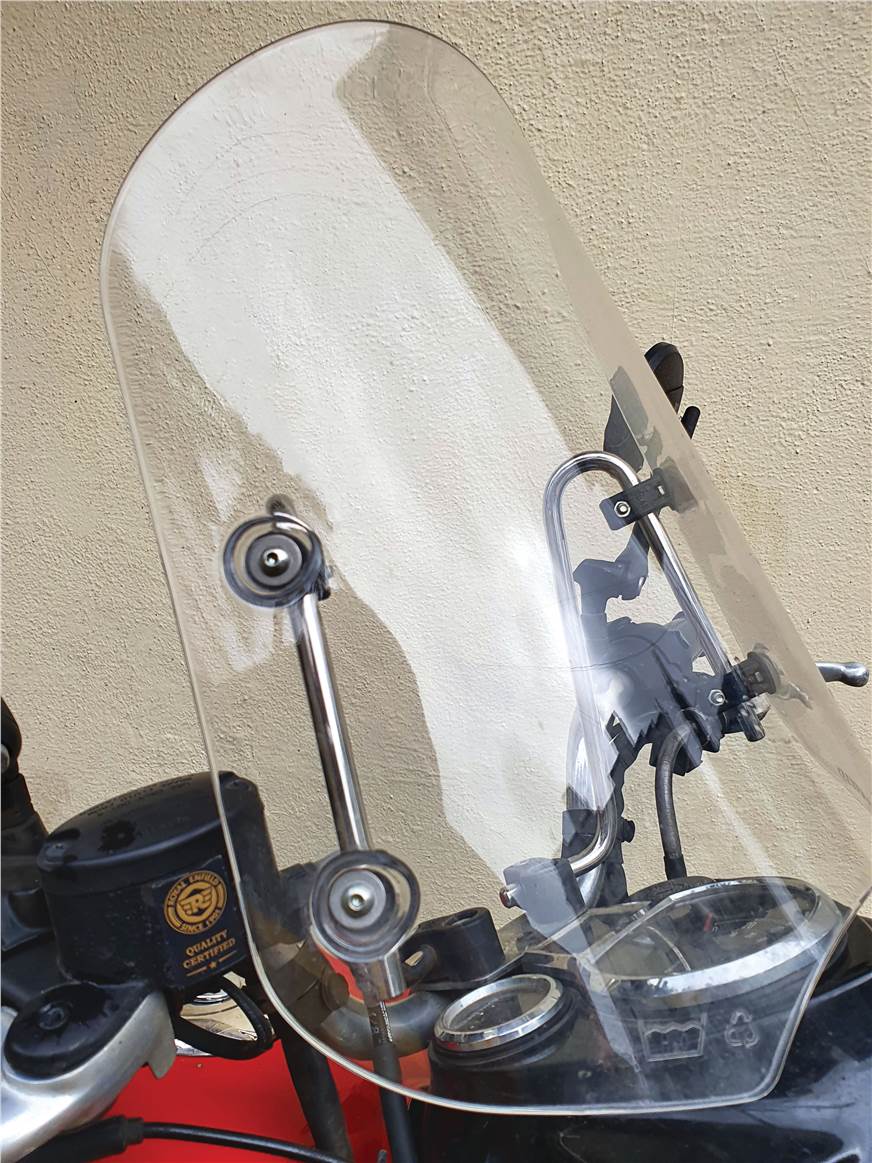
Accessory windscreen tends to rattle, now discontinued.
As well built and neat-looking as the accessory windscreen (Rs 3,300) is, and as great as it is at shielding you, it does rattle over bumps and at certain RPMs, no matter how much we tighten its mounting bolts. Perhaps that explains why it is now discontinued.
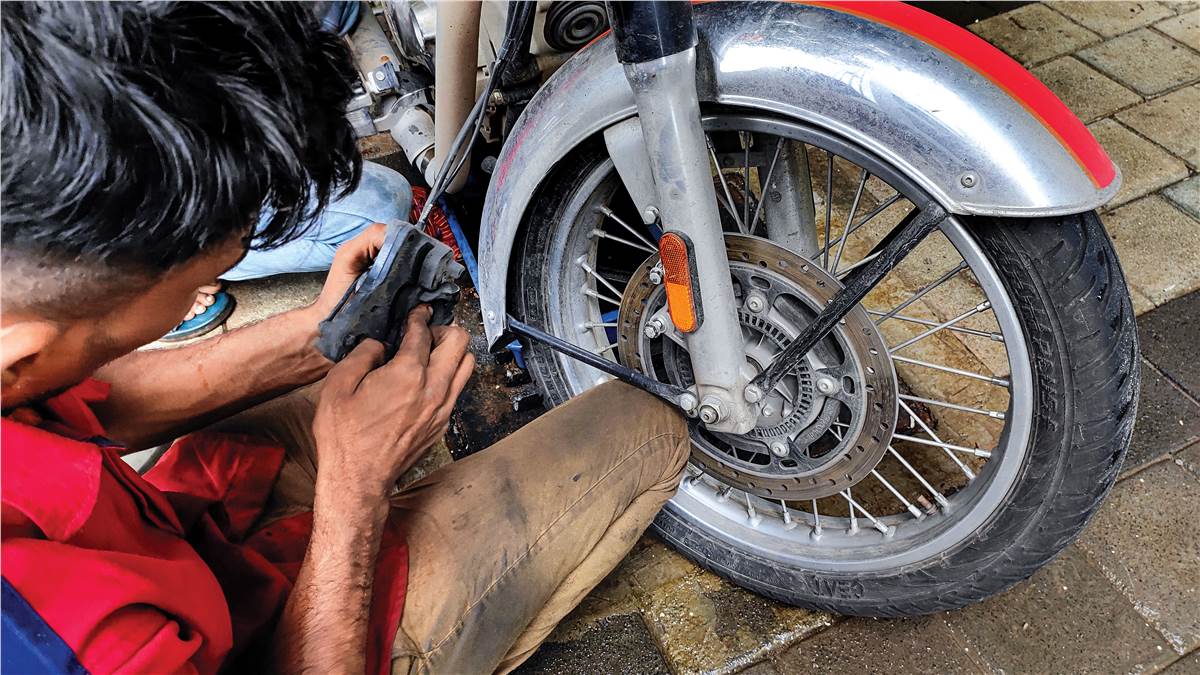
Both sets of brake pads needed replacement after just 5,000km.
The brake pads were replaced (Rs 250 for the front, Rs 270 for the rear) along with a regular service (Rs 1,200), using the super convenient service-on-wheels. The accessory ‘Deluxe footpegs’ also came off the bike – I quite liked the extra surface area they offer, and I find there’s less pressure on your soles over time. But Rishaad takes custody now, and he didn’t quite see the value in them. There’s no denying that, at Rs 2,650, they are quite expensive.
Now, the Classic is all geared up for its final stint in the Autocar fleet, ahead of what’s eventually going to be a rather heart-wrenching goodbye.
Previous Reports:
2021 Royal Enfield Classic 350 long term review, first report
2021 Royal Enfield Classic 350 long term review, second report
Source link

